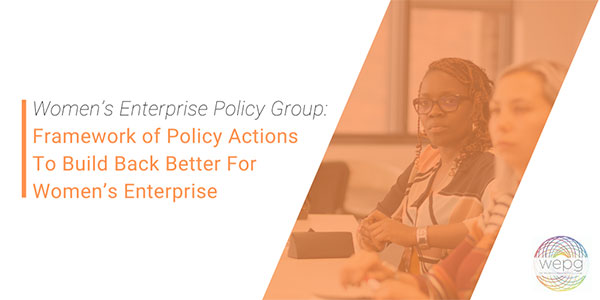
August 11, 2020, by Emma Thorne
Experts forecast “catastrophic economic impact” ahead if Government policy fails to support women’s enterprise
An academic at the University of Nottingham is among leading UK voices in women’s enterprise who have come together in a new report to say that current Government policy has failed to recognise the additional challenges faced by millions of women-led businesses.
As the Government and local authorities across the country launch campaigns to ‘Build Back Better’ and help the UK’s economy recover and grow in a sustainable way post-COVID-19, Dr Lorna Treanor, Assistant Professor of Entrepreneurship and Innovation in the Haydn Green Institute at Nottingham University Business School is among a group of women in business and academia demanding more support for women’s enterprise and avoid a ‘catastrophic’ social and economic end to 2020.
Dr Treanor is a member of The Women’s Enterprise Policy Group (WEPG), which has today (11 August) launched a ‘Framework of Policy Actions to Build Back Better for Women’s Enterprise’ aiming to address the gaps in Covid-19 enterprise support for women.
Evidence from the report indicates that women face a “tsunami” of job losses and business closures, unless the Government develops enterprise policy that is productive and fair for women.
Dr Treanor said: “Economically, COVID-19 has impacted upon women and women-owned businesses most severely. Research also shows that the policies being pursued have set gender equality back decades. These are not just women-owned businesses being affected; these are households and families that have lost income and face horrendous stress due to the precarity of these businesses.
“The SME community are also very aware that Brexit may introduce further shocks. It is crucial that enterprise policy is formulated in a gender aware manner now, not only to assist women entrepreneurs but to assist economic recovery more widely.”
Additional challenges
The report outlines how current policies have failed to reflect the extra challenges that women entrepreneurs face – including childcare responsibilities, gender bias and access to finance – and how the Government has failed to introduce measures to facilitate their survival and growth.
The WEPG is a national coalition of leading women entrepreneurs, researchers, business support providers and social entrepreneurs from across the UK. The group develops policy calls based on the latest evidence and years of experience supporting women’s enterprise creation and growth.
The group is now urging the Chancellor to bring them to the policy table to help shape policy that ‘Builds Back Better’ for women entrepreneurs, for the economy, and for society.
Professor Julia Rouse, Co-Chair of the WEPG and Professor of Entrepreneurship at Manchester Metropolitan University, says: “As our report shows, women running businesses have faced acute pressures during COVID-19. We know that women tend to trade in sectors that do more face-to-face work, for example, as carers, in hospitality and tourism or as beauticians, and that means their trade is only coming back slowly and is vulnerable to local lockdowns. Add to this school and nursery closures, and the threat of ‘bubbles’ and consequently support networks bursting when these re-open fully, and you can see the scale of the challenge.
“What is more, many women are excluded from proper income protection due to gaps in current schemes. The Government is facing legal action for disadvantaging self-employed women who took maternity leave in years prior to the pandemic under the Self-Employment Income Support Scheme. Looking at the picture for women who are directors of small firms, the main form of support they have been offered is through loans, but without any targeted marketing to women business owners who are typically more cautious about risking family security via business loans.
Equality cannot wait
“The question we now must ask is whether the Chancellor fully understands the extent of these issues and whether he is committed to supporting women’s enterprise? There is already a huge gender gap in entrepreneurship across the UK – only about one-third of all small firms are led by women. Equality simply cannot wait until the pandemic passes because COVID-19 is causing further inequality. Now is the time to develop practical policy that supports women business owners: any later could well be too late. That’s why we are calling on Rishi Sunak to bring us to the policy table to avoid the disaster of thousands of failed businesses at Christmas time and catastrophic economic impact.”
The WEPG have put forward its framework of policy actions to Government which they say will ‘build back better’ for women’s enterprise. These asks are around six key areas covering income protection; grants, loans and investment; valuing women-led sectors; business support; business start-up; and investing in a care infrastructure.
Members of the WEPG include representatives from some of the country’s leading academic institutions, including the University of Liverpool, Manchester Metropolitan University, the University of Birmingham, the University of Nottingham, the University of Newcastle and the University of South Wales. Alongside international representation from Mohammed Bin Salman College of Business and Entrepreneurship (MBSC) in Saudi Arabia.
Representation from women’s business support comes from The Women’s Organisation, Women’s Enterprise Scotland, Women in Business NI, ICE, GrowBiz and Radiant and Brighter CIC.
No comments yet, fill out a comment to be the first

Leave a Reply